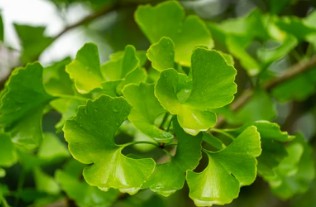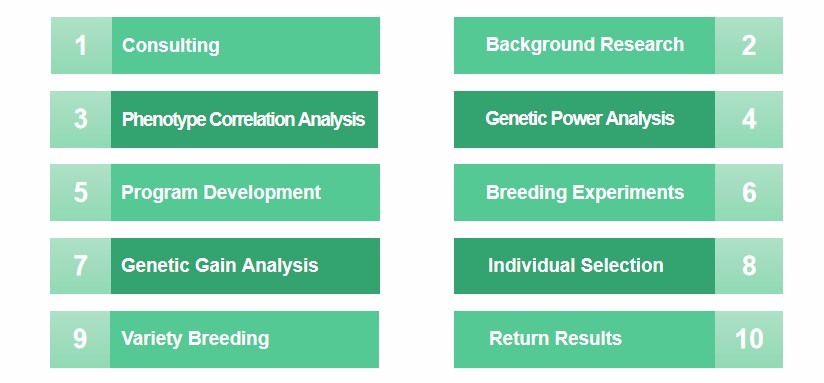
Ginkgo (Ginkgo biloba, G. biloba) is a medium-sized tree of the Ginkgo family and Ginkgo genus, native to China. It is the only extant species of gymnosperm Ginkgo biloba and is known as the "living fossil" of the plant kingdom. G. biloba has a certain value in food, traditional medicine, and ornamental, and it is now widely cultivated worldwide.
G. biloba has strong soil adaptability, strong resistance to harsh environments, and is not easily infested by pests and diseases. The leaves are also beautiful in form and golden in color during the deciduous period and are used as urban street trees or landscape trees. In China, the products of G. biloba are also used in traditional medicine. G. biloba leaves can be extracted with ginkgetin and ginkgolide, which inhibit platelet aggregation and are anti-thrombotic.
Lifeasible has strong data analysis capabilities and forest tree breeding technology and can provide professional Ginkgo biloba breeding services to global customers. Using our advanced experimental analysis instruments, we can quickly and deeply mine and compare the differences within G. biloba species, helping breeding scientists to select excellent new G. biloba varieties.
The diversity within the genus Ginkgo has been decreasing daily, and the accompanying phenomenon is the decline of species and the increasing limitation of geographical distribution. Breeding new species can increase the genetic diversity of Ginkgo biloba. Lifeasible provides a high-quality Ginkgo biloba breeding service for the growth characteristics and gene sequence of G. biloba and important scientific and technical support for developing the G. biloba industry. For G. biloba, we adopted methods such as hybrid and ploidy breeding based on whole genome resequencing.
By scanning millions of single nucleotide polymorphism (SNP) molecular markers in the G. biloba genome, genotype and phenotype correlation analyses were performed to screen out genetic variants affecting complex traits. The sex chromosome system of G. biloba has been determined, and molecular markers to identify male G. biloba strains have been developed to help scientists quickly analyze chromosomal differences and complete breeding work.
Hybrid breeding is the basic method of G. biloba breeding. The hybrid breeding services we provide are mainly from the perspectives of G. biloba's nuclear use, wood use, pollen use, greening, and ornamental use, etc. Generation and clone determination, development, and selection of elite tree species.
Through tree species screening, we found that there is natural high ploidy variation in G. biloba, and the plants with ploidy variation have the characteristics of fast growth rate and high product content. Therefore, we carried out ploidy breeding on G. biloba by colchicine treatment and other methods to provide unique resources for the breeding research of G. biloba.

Lifeasible has built a big data platform for breeding analysis and is committed to creating a new generation of breeding innovation platforms. We look forward to discussing the breeding technology of G. biloba with global researchers. We not only provide technical services but also help customers design experimental programs. If you are interested in our services, please contact us.
Reference
Lifeasible has established a one-stop service platform for plants. In addition to obtaining customized solutions for plant genetic engineering, customers can also conduct follow-up analysis and research on plants through our analysis platform. The analytical services we provide include but are not limited to the following:
Get Latest Lifeasible News and Updates Directly to Your Inbox
Adaptive Evolutionary Mechanism of Plants
February 28, 2025
Unraveling Cotton Development: Insights from Multi-Omics Studies
February 27, 2025